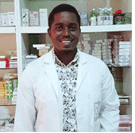A Problem Worth Solving
In recent times, there have been a growing rate of emigration of medical practitioners from Nigeria to developed countries. Annually, it is estimated that 2000 doctors leave the country to practice in developed societies. US, UK and Canada are the popular countries of destination.
There are about 72,000 medical doctors registered with the Medical and Dental Council of Nigeria (MDCN) but only approximately 35,000 are currently practicing in the country.
Consequently, the ratio of doctor per population is approximately 1:6000 for a population of over 200 million in the country. This don’t tally with WHO recommendation of 1 doctor to 1000 population. Nigeria needs 165,000 doctors more to meet WHO standard.
This ratio would only keep getting wider as the population growth rate is 2.6% annually and 91% of junior doctors are already considering practising abroad.
The Nigerian Association of Hospital and Administrative Pharmacists (NAHAP) has said there are about 17,600 registered pharmacists in the country, giving a ratio of 1 pharmacist to 12,000 Nigerians.
Also far more than World Health Organization (WHO) recommendation of 1 pharmacist to 2,000 population.
Nurses, Medical laboratory scientist, Radiographers and other health professionals are not left out of this mass exodus from the country.
The major reasons for this problem are:
- Poor Remuneration: The average monthly salary of a doctor in Nigeria in both the public and private sector is #200,000 naira which is about $560 as against $2500 that is obtainable practicing in the US or UK. This has led to consistent strike actions that usually ends up unproductive.
- Poor Working Conditions: There is shortage and in some cases lack of medical facilities to aid a proper practice. Sadly, the burden of the number of patients can be overwhelming as well.
- Insufficient health institutions to employ medical practitioners that has left many jobless.
- Poor opportunity to grow in their career: The current atmosphere, does not encourage growth of medical practitioners in their career. Most times medical practitioners have to foot the bill of furthering their studies to increase their knowledge.
In this article, we are going to look at how the business model adopted by Uber- which is called the on-demand economy or gig economy or platform economy can be used to solve most of these problems.
But first let us look at the history of business transactions as it relates to the seller and the buyer.
The Business Model
The bedrock of any business transaction is the meeting point of the seller/ service provider and client/customer.
The meeting point provides an atmosphere of trust and assurance for both parties for the transaction to take place. The seller wants to feel assured that the buyer can pay for his service and the buyer wants to be sure of the quality of service rendered or goods to be purchased. Neither of them wants to be cheated.
Independent contractors or freelancing was the main practice in the earliest times of business transaction. Then community base settlement was more popular.
A service provider would be well known in the community to render a particular service. Since the population was small, trust was not much of an issue.
As a service provider, if you render a poor service to a customer, feedback travels quickly among members of the community regarding your poor service and it can lead to a decline in business. This makes service providers work hard to give their best to customers.
As the communities started growing bigger into cities and even metropolis, and technological advancement now pushes the world into a big community, this model of business transaction no longer seemed sufficient.
Sellers had to put more measures to gain buyers trust so they can also widen their customer base to far reaching places of the cities or even country at large.
This led to the rise of the corporation or organization which became the backbone of the industrial economy.
In the industrial economy, the meeting point for service provider or sellers and the customer, is called an organization or company where the transaction is carried out.
In the organization model, service providers of like and complimentary skills are brought together to form a legal entity called the corporation or organization.
The organization is what customers would now have to interface with when carrying out a business transaction. Since these organizations have to register with the country of residence to render service, trust is built in the heart of the customers. In this way, customer dissatisfaction in the organization can lead to poor brand name for the organization.
The downside of this model, is that quality and cost of service is dictated by the organization and the service providers are usually placed on a fixed wage which most times is small compared to their work input.
At times they work outside their work description. There is also a fixed time frame for work, which renders the working condition is not flexible.
Advancement in technology is gradually changing the way business transactions take place. Two main breakthroughs are the drivers of this change:
- Faster transportation means ensuring faster delivery of goods and services.
- Faster transmission of messages over the internet and telecommunication networks over great distance.
Faster way of delivery of goods provide business the opportunity to send goods to customers globally and faster transmission of message also aided quick delivery of messages.
This advancement led to better business opportunity for the organizational business model, which led to huge profit. However, these same drivers, are gradually proving to be bane of the organizational business model.
In 2008 a company called Uber was born. They propose a business model in contrast to the traditional organizational model. In this model, the spotlight is placed on the transacting parties; in their case; the driver and the rider. While trust is handled by leaving a review and social proof on the platform for the service provider.
The driver can sign up to offer transportation service to the rider. The transactions are managed on a software that helps in the quick transmission of the transaction details.
This model leaves the service provider with a larger sum of the transaction fee unlike in the organization business model where the organization takes the bulk of the profit and pay the service provider a fixed wage.
The service provide can gain more in relation to work input. On the other hand, the customer enjoys a more affordable service.
Also, for trust of the quality of service, the customer is provided with enough information as with the reviews of other customers for a particular service provider. Top service providers get high ratings and are ranked high on the platform.
This is exactly how it was in the earliest times when business transaction was limited to the community and poor service is easily known by everyone in the community.
Only that technology, makes it easy and fast transmission of message and transportation now makes individual sellers get business transactions from far reaching cities and even globally.
For instance, a Nigeria seller can sign up on Amazon.com (a US based company) and sell products on their platform, they do not necessarily have to see the product because another company can fulfil the delivery for them. At the end Amazon.com only take a percentage, leaving seller with the bulk of the money.
This business model is called the on-demand business model or platform or sharing economy.
In developed countries, there are medical platforms adopting this model of transaction for their health sector. In health, this model of business is called telemedicine.
Telemedicine is the remote delivery of healthcare services, such as health assessments or consultations, over the telecommunications infrastructure.
The Nigeria Health Sector and the Current Business Model
The Nigeria health sector still practice the traditional organizational business model. Where the meeting points are the hospitals, clinics and pharmacy shops etc.
This model has led to the earlier discussed problems and is causing medical practitioners to leave the country for a better practice in developed country.
The on-demand economy has so much to offer the Nigeria health sector.
Features to expect from a Telemedicine App for Nigeria Health Sector.
- Physicians and patients should be able to register on the platform for free. This way, the patient would not have to pay registration fee and the doctor can sign up easily as far as he can prove that he or she is a doctor and licensed by the Medical and Dental Council of Nigeria (MDCN) to practice in Nigeria. The doctor would have a provision to upload the current license to practice for that year. In this way quack doctors can be prevented from registering from the platform. MDCN should also grant access to the public via their website so they can easily confirm the validity of a doctor, in this way any app developer can also confirm if a doctor is registered on their platform.
- The Physician should be able to set his/her own consultation fee: Physicians currently sees a lot of patients and they are paid just a fixed amount of monthly wage. With this model, the doctor can fix their own price. If a physician sees 25 patients per day at a consultation fee of 1500 naira per patient, at the end of the month for a 20-working day, the physician would earn 750,000 naira which is 375% higher than the current average fixed wage.
- Appointment booking system: the app should be able to manage the doctor’s working schedule by automatically arranging patient’s appointment in accordance to the doctor pre-set schedule. In this way, patients would be allotted slots and a slot can not be booked twice to avoid clash of appointment schedule. The physician would be able to see consultation queue on their account in the app.
- Provision should be made for a two-way chat and video conferencing: The app should provide a two-way experience. Consultation can either be live or virtually. Patients might like the convenience of a video chat with the physician instead of the traditional office visit.
- Medical records of patient should be storable and easily retrievable in the cloud. This would give physicians access to enough information of the patient’s history both medical history and disease history. So, treatment plan would be more scientific rather than empirical.
Conclusion
There are telemedicine apps currently in existence in Nigeria but there is poor awareness. The various stake holders and venture capitalist need to act fast to cub this problem of medical emigration.
A viable system needs to be created and funded. There is so much more telemedicine can do for the Nigeria health sector.
Author Bio:
Pharm Afoke is the founder of fokzmedics.com, a practising pharmacist and medical writer. He is highly enthusiastic to see how the internet technology can be adopted to solve problems in the health sector of Africa.
email: [email protected]










